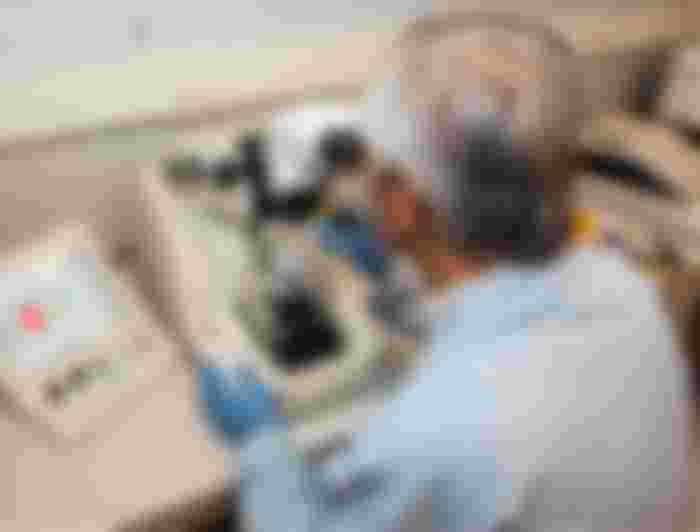
Speaking of DNA fingerprint discovery
© Panchanan Mandal 10092020
*************************
"Today is Monday, September 10, 1984, at exactly 9:05 am.
The world's first genetic fingerprint was unveiled. From a scientific point of view, this is truly an Eureka moment. We got an incredible variable array of DNA, which was from samples from our assistant technicians, their parents and some other mammals. My first reaction was "It's very complicated", realizing a few moments later "We've got a genetic fingerprint."
This was the first reaction of Alec Jeffries, a scientist at the University of Leicester in England, to the discovery of DNA fingerprints on this day, September 10, 1974.
Fingerprint identification completes the long-running attempt to find a reliable way to identify the culprit. But in 1974, Alec Jeffreys, a scientist at the University of Leicester in England, made an unprecedented change in forensic research with the discovery of DNA graphs. While working in the laboratory, he found similarities in the X-ray film of the DNA of different members of a family, which was the basis for his discovery of the DNA fingerprint method.
DNA profiling (English: DNA profiling or DNA fingerprinting) is a state-of-the-art method by analyzing the DNA in a cell to create a portrait or diagram of a person that can be used to accurately identify him or her in the future. Just as each person's fingerprint is unique, so is the structure of their cellular DNA. Just as fingerprints differ between two people, so too do differences in DNA. Two people can be distinguished on the basis of such differences in DNA. Every human being, except twin siblings, has a different DNA structure. Scientists have found that human DNA contains replications of some nucleotides that only their offspring share with certain mothers and fathers. In humans, DNA synthesis is made by collecting DNA from white blood cells or sperm, hair follicles, or bone marrow cells.
Just as real and fake people can be identified by human fingerprints, real and fake people can also be identified by DNA tracing. In fact, the use of this method in forensic biology to diagnose criminals has opened up new horizons as the science of recognizing people in this way is much more scientifically agreed. DNA tracing is widely used in almost every country in the world to identify the right culprit. In the meantime, it has been used successfully in various biological evolutionary endeavors.
A small amount of DNA can be collected from a human body cell, but a DNA graph of that person can be made from it. So after extracting DNA from a cell, it is possible to make a DNA chart of a human with its help. If the amount of DNA obtained is less, the amount of that DNA can be increased by PCR method. From the DNA obtained from a person's body cells, the DNA chart of that person can be made according to some periodic method. However, the graph of one person in every 12 million people can be matched.
In criminal identification,
DNA transcription is proving impossible in diagnosing paternity, identifying mutilated carcasses, finding genetically similar relatives for the reproduction of endangered species, determining the relationship between donor and recipient before medical bone marrow transplantation, and finding the right path to evolution of other organisms, including human

Nice know the Bangladesh